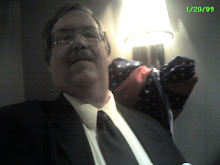The origin of this comedy is Bancroft Davis who as a court reporter in the 19th Century created the idea of corporate personhood as a gloss upon a Supreme Court decision. Please note, this idea was not a part of the original decision. In the Citizens United case, decided yesterday, the conservative majority of the Supreme Court pressed the logic of corporate personhood further than ever, finding the corporations are endowed with the same free speech rights as natural persons.
Steve Andrew, known on Kos as Darksyde, discusses some potential consequences for the case for the state of Texas, here While another Kos contributor notes the potential for a New Gilded Age. (And I thought the Reagan era already initiated the Second Gilded Age of the United States. That would make this Gilded Age 3.0, to go all 21st Century.)
I am here to tell my fellow progressives not to despair. This decision, in fact, provides us with an unprecedented opportunity to move a vast progressive agenda forward. What we must do now is push the logic of corporate personhood still farther.
Specifically, we must point out that if corporations are to possess all of the attributes of natural persons, some additional progress needs to be made. The attribute that I refer to is personal freedom. After all, the 13th Amendment states: Section 1. Neither slavery nor involuntary servitude, except as a punishment for crime whereof the party shall have been duly convicted, shall exist within the United States, or any place subject to their jurisdiction.
What is slavery? According to the The American Heritage® Dictionary of the English Language, Fourth Edition:
slav·er·y
(slā'və-rē, slāv'rē)  n. pl. slav·er·ies
|
Copyright © 2009 by Houghton Mifflin Company.
Published by Houghton Mifflin Company. All rights reserved.
It is perfectly clear that corporations are held as the property of their owners. Thus, the full doctrine of corporate personhood suggests that the next civil rights struggle must be to free corporations from ownership by private individuals.
Of course, it is also perfectly clear that corporations are not competent to exercise many of the rights that are inherent in natural personhood. This suggests that after the liberation of corporations from private ownership, they must become wards of the state. This is identical to the situation of orphaned children who have no natural relatives who can undertake their supervision and education.
This is clearly a desirable outcome for progressives, with careful tutelage corporations could grow up to be responsible adults who don't soil themselves, trash their neighborhoods, or cause harm to individuals through malice or negligence.
Of course, it would also be possible to just recognize that a corporation is a legal fiction used by our society to organize certain types of activities and are entitled to exactly the rights and responsibilities that democratic governments grant them. Nah, that would be too simple.
More on Citizens United
Steven Andrew (Darksyde)
Daily Kos (New Gilded Age)
Daily Kos (Justice Thomas)
Daily Kos (Analysis of Citizens United)
Wall Street Journal (one from the other side)
New York Times

No comments:
Post a Comment